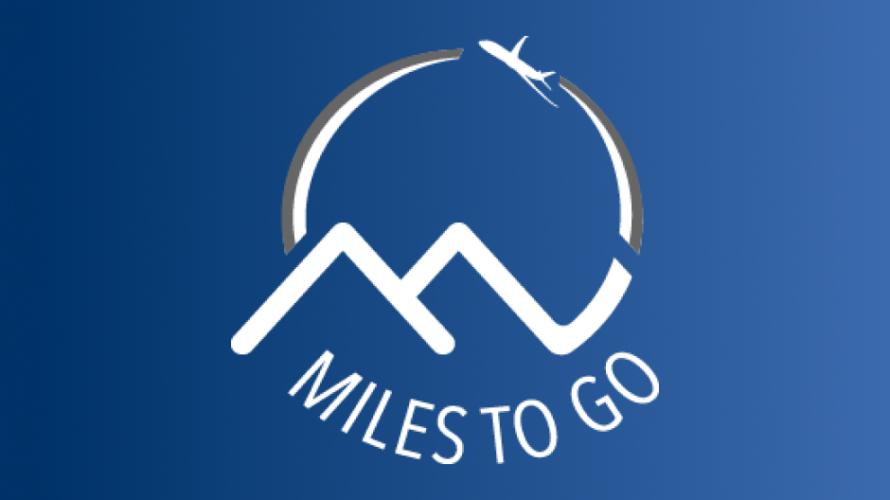Speaker 1: You're listening to the Miles to Go podcast, the go-to source for travel tips, news and reviews you can't afford to miss. Now here's your host, travel expert, Ed Pizza.
Ed Pizza: Hey guys, welcome back to the Miles to Go podcast. This week, we're talking about the best benefits from popular credit cards that may already be in your wallet. You guys hear me preach all the time about making sure those cards are earning their place in your wallet. Well, we've got a card expert on this week's show who, frankly, puts me to shame. Julian Kheel will be joining us shortly, but first, I wanted to front-load the show with this week's final two pennies, which I guess makes it the first two pennies. Anyway, I'm still sitting at home, but I can see my place in line coming for the vaccine and stick with me, because I promise we'll tie it all back together. I'm looking around at the world and I'm seeing different reactions to travel right now. New York announced new rules about vaccinated people visiting the state.
I assumed I knew the story, but when I read further, it was different than I expected. Essentially, if you're fully vaccinated, you can enter New York with reduced restrictions for up to 90 days after you're fully vaccinated. After that, all bets are off, though, we should know a lot more about vaccines and efficacy in the next 90 days. That New York story was what I would call 'under-reported.' It's a pretty big step forward, especially if other states and countries follow suit, but it's not something that I've heard a ton about, not a whole lot of buzz, at least. At the same time, just yesterday, I was talking with a friend who's also a lover of travel like me. She was trying to figure out what a good value would be for some Marriott free night certificates that she had received from some of her credit cards.
With nightly hotel rates much lower than normal, getting outsized value for these certificates is definitely more challenging, especially if you're traveling less overall. Some of the best places to redeem these certificates are outside of the U.S., in countries where a lot of U.S. folks aren't really allowed right now. I have friends asking me if they should travel once they have a vaccine and if so, should they tell their friends and risk getting ostracized? So there's just a lot going on right now in terms of what our direction is. Over the past year of the pandemic, if you have had travel credit cards in your wallet, your points balances have likely been growing. So while you're thinking about if you should be traveling, you might be itching to spend those points and depending on your budget, it might be a great idea for you. But I think you make the decision on what your points and miles are worth, not anyone else.
So if we take a step back for just a minute, I think it's worth noting that hotel prices are very cheap right now and affordable airfare can be found pretty regularly. While some folks will say you should burn your points because they won't go up in value later, I think we're in one of those rare times where even though I think hotel chains will raise the price for a free room in the future, your points could be worth more further down the road if those cash rates go up as well. Bottom line, my conversation with Julian this week is a great time to take stock of what your credit cards are offering you and whether it's time to realign your thinking. Some of the benefits he's going to discuss can really help out your wallet in a time when everyone can use a few extra bucks in their pocket.
But before that, I just need 60 seconds of your time. If you haven't left us a rating and a review, there's a link in the show notes that makes it super easy to do. Those ratings and reviews help us out big time when it comes to attracting new listeners. As you're settling in for this week's show, I'd really appreciate it if you told a friend about Miles to Go. Word-of-mouth is a great way for us to grow our audience. As always, if you have questions, I love answering them. Shoot me an email, ed@pizzainmotion.com, or find me on social media, Twitter, Facebook and Instagram, all @pizzainmotion. On the other side of the music, Julian Kheel, senior finance editor at CNN joins us to talk about the best in credit card benefits.
Back on the Miles to Go podcast and you guys know I always preach that you should be getting value from the credit cards in your wallet. It's a lot harder to do during the pandemic because most of the cards in my wallet are travel-focused. If you listen to the show on a regular basis, it probably won't come as a surprise to you that I end up having nerdy conversations with other people in the miles and points space about how best to maximize the value of all the credit cards that we carry. My guest today literally brought a Ziploc bag of credit cards with him the last time we recorded in person when people still got into rooms together with each other, which feels like a million years ago. I'm joined today by Julian Kheel, senior finance editor at CNN and we're going to be talking about your favorite credit card benefits. Hey, Julian.
Julian Kheel: How you doing, Ed? I'll tell you, that Ziploc bag has only gotten bigger during the pandemic.
Ed Pizza: True to point, only someone as nerdy as me would be quick to point out that the Ziploc bag has gotten bigger, which I was obviously impressed by.
Julian Kheel: What are you going to do when you're sitting at home other than get more credit cards?
Ed Pizza: Well, it's also, if you think about it, we're the folks who read the terms and conditions of all these cards at a very deep level and help folks understand how these programs can be valuable to you. Locked inside for a year, I've done a lot of reading. I imagine, based on the list that you've put together, you've done a lot of reading too.
Julian Kheel: That's right. Like you said, if you know how these cards work, then you can really take advantage of them even when you can't travel, even with travel credit cards. So I've put together a list of some of my favorite perks and the coolest things that I've found on various cards that I have that I think people really would enjoy having. Some of these perks you probably already have on cards you have in your purse or wallet right now.
Ed Pizza: I'll say, I started out the pandemic thinking that I'd probably lose a bunch of cards along the way. While I have made an effort to trim down my wallet, I'll say that, by and large, I feel like most credit cards have done a reasonable job of putting offers out there that made it worthwhile to think about not canceling these cards. So does that sound fair to you?
Julian Kheel: Yeah. I completely agree with that. I think the issuers have been really proactive about trying to retain their existing card holders by offering benefits and perks that you can use even when you're not on the road, even with cards that are designed to mostly work on the road. So yeah, I think they've really worked very hard to do that and I think they've seen a lot of success in that they have been able to retain more cardholders than they probably originally expected to.
Ed Pizza: So you put together what I think are a great list of categories, if you will, of benefits. These will vary a little bit card to card and we're going to talk about these in general categories. But for you guys listening in, we're also going to share some of our favorites, specifically, along the way to make sure we can connect the dots for you. Since we probably won't get through all of the benefits, you guys can click on the link in the show notes to read Julian's full article. All right, man, you ready to dive in?
Julian Kheel: Yeah. Let's do it.
Ed Pizza: So I think the best place to start, just because we just talked about how the card issuers were doing a really good job trying to find alternate benefits, I think let's start with talking about what I'll refer to as the free money, these things that popped up, whether it was a dining credit or Peloton owners, like all this stuff that the card issuers came up with to put cash back in our pocket.
Julian Kheel: An element of a credit card, the ones that have it, and more and more of them have it nowadays, that literally puts money back into your pocket and they are use it or lose it, so it's important to know that they're there and to take advantage of them. The most popular one that probably listeners of this show are already familiar with is the Chase Sapphire Reserves $300 travel credit. Now during the pandemic, people say, "Well, that maybe difficult to use, a travel credit," even if it is broad, even if it can be used on Uber and such.
But the great thing about it is that as we talked about earlier, Chase has expanded that credit temporarily through June 30th of this year. You can also use it for gas and grocery purchases, which we're all certainly still doing. Another similar example of this would be Prestige. It has a $250 annual travel credit, but right now, it can be used also for supermarkets and restaurants and that's all the way through 2021. So with these credits, you can use them. You just have to know how they've been expanded.
Ed Pizza: I think those are great examples for folks who carry those cards. Of issuers, I think that made it super easy to get value out of the card, because as you say, it's one category, it runs all year. It doesn't have the monthly reset. I think where a lot of card holders can get tripped up. We've talked about this on the show over the past year or so, trying to help folks remember these things, but I think where folks can get tripped up is that a lot of these discounts are monthly discounts. So you have to remember to pull the card out every month and reuse that discount if it's not a card you'd normally use every month.
Julian Kheel: That's exactly right. One of my favorite free money perks is actually the dining credit on the American Express Gold Card. It's advertised as up to $120 per year, but as you mentioned, it gets actually doled out in $10 per month amounts and if you don't use it in the month that you get it, then you lose it. So what I do to make sure that I'm using it, and I live here in New York City, so I use Seamless and Grubhub a lot, which count for this dining credit.
So I make sure that my Amex Gold card is my default card in Seamless and Grubhub. That way, whenever I place an order, it doesn't even matter, I don't have to keep track of the calendar because I know I'm going to make at least one Seamless or Grubhub order each month. That's the card it'll go on. It'll automatically credit that $10 monthly credit and I'll get the money. You want to do it that way, either have the card on the top of your wallet so that you remember to use it each month, but make sure you're using those credits and you're not losing them.
Ed Pizza: This is one of those things, I just literally talked about this in a recent episode. I had a listener and I took it as a listener question a little bit selfishly because he was asking about cards that were in my wallet and I needed to do the research, whether to hold onto them or not. So I have an American Express card that you can't get any more. It was my old SPG Amex. I'm sure you have three of them in your wallet.
Julian Kheel: I probably do, yeah.
Ed Pizza: Yeah. So now it's the Amex Marriott Bonvoy card and it's one of the cards that they recently added a $10 monthly dining credit for, for the rest of the year. This was a card that was absolutely on my list to potentially cancel. I was going to get rid of a Marriott card because I have more than one. It's a $95 annual fee, if I remember correctly. I can get $110 in dining credits over the course of the next year if I'd just remember to pull this card out of my wallet once a month and buy a pizza with it.
Julian Kheel: Exactly. You're literally making money off that card this year.
Ed Pizza: Right.
Julian Kheel: If you use every single credit each month, all you got to do is remember to do it, then you're going to make $15 off that card this year.
Ed Pizza: Look, I understand this can be complicated for people that are listening, but that's why we're here. So let's talk a little bit about something that had a recent announcement. Let's talk about cell phone protection in general. I'll profess ahead of time, I've been really bad about making sure that I use cell phone protection on my credit cards.
Julian Kheel: It's easy to forget about it and partially because up until a couple of years ago, it didn't exist. But as phones have become more common and, obviously, everybody's got their phone, it's the lifeline to the world-
Ed Pizza: And more expensive-
Julian Kheel: ... and more expensive, especially if you don't have them combined with a plan, you can be paying up to a $1,000 for a new phone. More and more cards are adding free cell phone protection as one of their benefits. The announcement you mentioned last week, or at the beginning of the month, American Express announced that it is adding, for the first time, cell phone protection across about a dozen of its own cards.
The one thing about the American Express version is that they tended to put it on their expensive cards. I think the lowest annual fee on any card that they added it to is $250, but you don't need to spend that kind of money to get this type of protection. One of my favorite cards that has cell phone protection is the Chase Freedom Flex, which has no annual fee at all and earns lots of cash back in the form of 5% cash back when you book travel through Chase, 3% cash back on dining, at drug stores. It's got rotating categories. It's a great card that you can just stick in your wallet and use wherever you go, but also just put your cell phone bill on it and then if anything happens to your phone, if it gets stolen or damaged, you'll be covered for the repair.
Ed Pizza: I think that's the thing, most folks don't think about this sort of thing. In fact, I would guess that if you haven't been a listener of the show for a while, most normal folks probably don't even pay their cell phone bill with a credit card.
Julian Kheel: Right.
Ed Pizza: I know lots of folks who just pay it with their bank account as an auto-draft. It's like, "Well, that's just easy," and it's like, "Well, sure, but it's also easy to set it up as an auto payment on your credit card and just pay that bill, earn points for it," given the fact that, gosh, it's easy to spend $,1000 on a cell phone now, to have that protection if you drop it.
Julian Kheel: Especially with something like a cell phone bill where you can really just set it and forget it, there's no reason to have that auto-pay coming out of your bank account or your debit card when you can switch it to a credit card and be covered on your phone.
Ed Pizza: I agree. I don't know about the American Express version because it's fairly new, but I do have folks I know who have pretty easily and successfully used the Chase version of this protection to save themselves hundreds of dollars when they shattered a phone screen or something like that.
Julian Kheel: It really can come and help come in handy. The one thing you do need to know is that not all cards have this protection, so you got to know which ones do and the ones that do, each have varying terms. Some cards will cover each claim up to $600. Some will do up to $1,000. There's always also a deductible included when you make a claim; that can range from 25 to $100. Then, each card usually has a maximum number of claims that you can make every 12 months. It might be two claims; it might be three claims; it might be a overall dollar cap. So you just need to learn what terms are on the particular card you're putting it on. But even if you had the worst terms, that's still money that will protect you, that will cover your repair or replacement or help cover it if something bad happens.
Ed Pizza: I'd say over the last few years, what we've seen is price protection has gone away largely with credit cards, which was a big thing for years and cell phone protection seems to be the new price protection. It's a little bit clunky to use at times, but it can be an incredibly valuable benefit, especially if you drop your phone a lot like I do.
Julian Kheel: That makes sense. One of the reasons the price protection went away is that there were apps appearing that would game the system. That's, obviously, not something that's going to happen with cell phone protection because, obviously, you do need to prove that your phone was damaged or that it was stolen. If it was stolen, you usually have to file a police report so there's some sort of evidence of it. So it's not something that I think will be easy gained.
Ed Pizza: All right. So next up is we're probably just a touch early on this one, but for folks who have pre-existing conditions or folks who are, say, 65 or 75 and older, and have already gotten vaccines in their arm, which I have not, lounge benefits from credit cards. I think as a road warrior, I take for granted lounge access because I generally have it through some sort of elite status, but most people get their lounge access through credit cards.
Julian Kheel: I think most people, or more people, are going to be interested in lounge access as travel begins to pick up after the pandemic, as the pandemic begins to end, or at least wane, because a lounge is a place that you can get away from the terminal, that you can get away from hoards of people and get into a little more of a, for lack of a better term, VIP experience. Most lounges, if you don't have elite status, the next best way in is with a credit card. Depending on which credit card you have, you can usually access some sort of lounge for free with that card. The most popular one, and I'm sure one that you've talked about here on the show, is the American Express Centurion Lounges, which American Express, to their credit, even through the pandemic, has been really committed to that network.
They've even recently opened new locations in Denver, in JFK. New lounges are scheduled for London and right in your neck of the woods there at Washington National, which I'm sure you're excited about. Most people, I think, believe that the Centurion Lounges are probably the best domestic lounges and you can access them with an Amex Platinum or a Business Platinum card. If you have a flight the same day, it's free to get in. If you have a Delta Reserve card, a personal or business one, you get in if you're flying on a Delta flight that day. It's a perk that may seem a little, I don't want to say excessive, but it really is the sort of thing where you get into the space and you sit down and you look around and you take a breath and you say, "This is worth just getting that moment to myself to be able to refocus during travel, maybe get a little work done and really be in a space where I can think."
Ed Pizza: When I think about lounge benefits, and I'm going to make myself sound old, though not as old as you, the lounge benefit used to be priority pass, which for folks who haven't heard of that program, it was essentially a program where you usually had a different membership card that you got by proxy of some other credit card you had in your wallet. You had a book that you would flip through to find which lounges were accessible and on what days and what times and who you could bring and what the cost was. It was a very cumbersome experience. Some cards tried the whole, "Here's two lounge passes per year," thing, but lounge access, as you noted, has morphed more into, it's a bolt-on benefit to the card. I think the Amex Centurion Lounge access is a great example of that where you don't have to worry about how many times you use it in a year or certain times of day or things of that nature. You're just a member.
Julian Kheel: American Express, we know, has found that benefit of Centurion Lounge access to be immensely popular with their card holders. They've put millions of dollars into the lounges so, obviously, there's a huge benefit to them for it. Even talking, though, about the priority pass, which is still a bolt-on to a lot of cards, even that has been improved. You mentioned the old books and the old card, now you can get the priority pass app and download it to your phone and find your local lounge that way, whatever airport you're in.
Even the card itself, I have a priority pass card and I have it in my iPhone in my wallet, electronically. All I have to do is bring it up on my phone and they can scan it and off I go, so I don't even have to carry the physical card with me. That's a benefit that you might find even on cheaper cards like the Hilton Surpass. You won't get unlimited priority pass visits, but you will get 10 a year and that might be plenty for a leisure traveler who only flies once or twice a year.
Ed Pizza: Right. I think that's going to be enough for a lot of folks.
Julian Kheel: Yep.
Ed Pizza: So next up is what I would consider one of the sneaky best benefits on the list. I say sneaky best because I think most folks don't use the shopping discounts and I think they certainly don't maximize them. I think they're talked about a bit less in the travel blogging world because they're not as valuable as they used to be, but boy, you can still get a ton of money out of these.
Julian Kheel: It's another example of if you're not using them, you're leaving money on the table because they're available, at this point, on almost practically every credit card out there, because every major issuer has launched a shopping discount program. The most popular is Amex Offers, which maybe you've heard of it. I know you haven't, but maybe your listeners have heard of. On any American Express card, any issued card by American Express, you can go into your Amex account online or through the app, find Amex Offers and see what shopping discounts are available.
These can be something like spend $50 at Staples and get $15 as a statement credit. That's literally, you spend $50 at Staples, pay on your American Express card and $15 of it comes back to you. It's literally that simple. The one thing you just have to do is activate that offer before you go shopping. The same system is available for Chase. Chase has their offers program. Bank of America has a program. Capital One has a program. It's just a matter of taking the time, and it only takes five minutes, to go onto the issuer's website, to your credit card's website and find the program and see what offers are available and add them to your card.
Ed Pizza: This is one of those things, like Julian said, that can easily be overlooked by folks who have these cards in their wallet. My advice here, and to be clear, I'll use Amex Offers as an example. Typically, when I go in and look, I have at least 100 offers, so there's a lot to go through. But I think it's just as simple as set a reminder for the beginning of the month. This isn't a perfect system because new offers do drop in throughout the course of the month.
But if you just took one day a month and spent 10 minutes logging onto your American Express card, your Chase cards, and looking through the offers and adding them to these cards, then they're just active on the account. Like Julian said, if there's an offer for one of your favorite merchants, you put it on your card. If you don't spend from that favorite merchant that month, who cares? You didn't lose anything. But if you happen to have a last minute, "Oh gosh, I got to get flowers," or, I need to go to the Gap," or, "I got to drop something off at FedEx," then, those discounts are pre-loaded for you.
Julian Kheel: Exactly. There's no cost to load them, so personally, when I go into Amex or whichever program it is, I just load them all because it doesn't cost me anything. Like you said, if I end up not using it, it'll just eventually drop off the card. The one thing you do need to keep in mind is that you must add the offer to your card before you make the transaction. You can't do it retroactively. If you have Amex cards or multiple Chase cards, well with Amex, you can only add each offer to one of your Amex cards.
Ed Pizza: Right.
Julian Kheel: With Chase, it's a little different because each offer may appear on different cards. If you have the same offer on two or three or four of your Chase cards, you can add it to all of them and you can use it three, four or five times, depending on which cards you have.
Ed Pizza: I will say that is one thing that I have to think about when I'm adding offers to cards because since they're only eligible on one card, the Amex Offers, as you note, there are certainly offers where I've just got to remember because I have a handful of American Express cards that I carry and that I use for various purposes. But I think we're probably in the minority of the listening audience, if I had to guess there.
Julian Kheel: Most people probably have one American Express card at most, so for them, it's easy just to add them all to that one card and go about your business. You might be pleasantly surprised, all of a sudden, 20 free dollars shows up on your statement.
Ed Pizza: Not to put you on the spot, but if you had to guess, how many American Express cards do you think you have?
Julian Kheel: I have, I believe, six right now. I have an Amex Gold, an Amex Platinum, a Business Platinum, a Marriott card, as you mentioned, a Blue Business Plus and a very old Amex Optima card. That's six.
Ed Pizza: Ah, I don't have an Optima.
Julian Kheel: So I'm a few cards short of where I'm usually at.
Ed Pizza: Ha, ha. I think I'm at seven. I used to be at eight, but we canceled our Amex Centurion cards last year when the annual fees came due and they were just super, super expensive. It was a bit of a sad moment, but we just weren't justifying the big, big annual fee on the Black card without having any travel.
Julian Kheel: I'm sure they'll invite you back, eventually. One day down the line, they'll say, "You know, we miss Ed. Let's see if he'll come back."
Ed Pizza: I've been a member for a very long time and yet I'm still not sure that conversation is going to happen, but you never, never know. Before we run away, let's do one more. I think it's starting to become more relevant as people are getting back out there. It's not one that I've used very often. I feel like there are probably opportunities I could have and I just didn't because I was dealing with the craziness created by the situation, but travel insurance is something that's starting to have a bit of a renaissance when it comes to credit card benefits.
Julian Kheel: Especially coming out of the pandemic, people are booking travel and worried that maybe something is going to happen or they're not going to be able to take that trip and they're going to lose money. The airlines have made it easier in that a lot of those onerous cancellation or change policies have been altered so that you can book an airline ticket and usually change it for free nowadays. But it's still best to be protected, if you can, with some sort of travel insurance. The best part is, is there are a lot of credit cards that various forms of travel insurance as a complimentary benefit. You don't even have to pay for it. Now, unlike traditional travel insurance where you would buy a policy, each card has specific protections that it offers and they can vary greatly from card to card.
So again, you really need to know what your particular card has. But in regards to the pandemic, the most important of those protections that you'll want to look for is the trip cancellation and interruption insurance, because if your credit card has that coverage and you fall ill with the coronavirus and need to cancel your trip or cut it short as a result, your credit card will cover you for those lost travel expenses. That coverage will also apply if there's a quarantine on you that's imposed by a physician due to the coronavirus, or the government or a legal authority imposes unexpected travel restrictions, you can also be covered. Now what's not covered is if you voluntarily decide you don't want to go on the trip because of the pandemic, in that case, you're on your own. But if you are forced to do so by an outside, unpredictable factor, that's where the coverage can really help you out.
Ed Pizza: I'm curious, have you ever used travel insurance?
Julian Kheel: Oddly enough, I've never had to use it. I've been very fortunate, but I am very careful about what card I use to book my expensive trips so that I know I will be covered, because one of the keys to this travel insurance is that you have to book at least part of the trip with that card and in some cases, the entire trip to be covered. So I'm always very careful about which card I'm using to book my flights, my hotels and that sort of thing so that I know I'm covered. I do know other people who have used these types of productions and have literally saved thousands of dollars or gotten back thousands of dollars when things went wrong.
Ed Pizza: I'll say I've been pretty lucky. There have been a few spots where I think I probably could have used travel insurance, but it wasn't a huge loss. I ended up getting caught up in fixing the trip as opposed to making the claim, but I love having it on the card as protection, especially, as you mentioned, because things are pretty unpredictable right now in the middle of the pandemic.
Julian Kheel: Because I hear you, especially when you're in the middle of it, you're probably not thinking about it, necessarily, your credit card covering you; you're trying to probably fix the problem. But you can make those claims after it's all over once you're back home, if you spent $200. For instance, another benefit is a trip delay protection where maybe your connecting flight is delayed by hours and you ended up having to stay overnight and you don't have any toiletries because they're all in your checked bag, so you have to go out and buy toiletries. That's the sort of thing where with trip delay protection on a credit card, they'll reimburse you for that and you can make that claim once you get home and everything is over and you're not in the middle of that frenetic travel emergency.
Ed Pizza: I agree with you 100% and I'm sure you'll agree that I have reached the age where my memory is just not good enough. It's gone by the time I get home.
Julian Kheel: That's why you're married, Ed, because you have someone who can remind you of these things and say, "Hey, why don't you file that claim?"
Ed Pizza: Yep. Speaking of which, she's probably wondering where I am. I'm trapped in the basement talking to Julian, so before we run out of time and I kick you out of here, tell folks where they can track you down. We'll be linking to the article in the show notes so you guys can read the rest of what Julian thinks is cool for credit card benefits. But where else can they find your writing?
Julian Kheel: You'll want to come to cnn.com/underscored and click on the money tab at the top of the screen. You'll find not only my writing, but our whole team's coverage of everything personal finance, credit cards, mortgages, taxes, checking, savings, everything you can think of when it comes to personal finance. If you want to follow me personally, I'm on Twitter, @julianheel.
Ed Pizza: I love it and I do love money. All right, Julian. Thanks a bunch for being on the show. I really hope that I'll see you out on the road some time soon.
Julian Kheel: You as well, my friend. Take care.
Ed Pizza: That's a full wrap on this week's episode. You can find links to everything we discussed today in the show notes. A big thanks to all of you for tuning into this week's show. If any of you have questions or suggestions for a future show, you can drop me an email at ed@pizzainmotion.com or hit me up on social media, Twitter, Facebook and Instagram, all @pizzainmotion. You can find me blogging daily at pizzainmotion.com. Until we upload again, we've got miles to go.
Sign up to receive email updates
Enter your name and email address below and I'll send you periodic updates about the podcast.
Links
9 of our favorite credit card perks
If you enjoy the podcast, I hope you’ll take a moment to leave us a rating. That helps us grow our audience!
Hope you enjoy the show!
If you have a suggestion for a future show find me on Twitter, Facebook or Instagram and let me know what you’d like to hear about!












Add comment